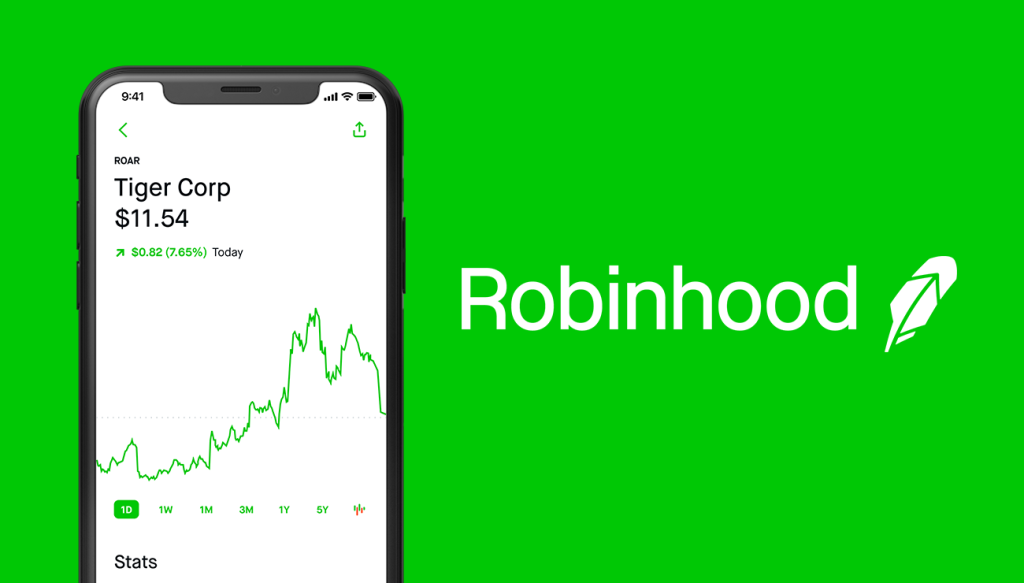In the ever-evolving landscape of financial markets and investment, Robinhood Markets has emerged as a groundbreaking platform that has redefined the way millions of people approach investing. Founded in 2013 by Vlad Tenev and Baiju Bhatt, Robinhood has transformed the investment industry with its mission to democratize finance. This article delves into the history, features, controversies, and the future of Robinhood Markets.
The Birth of Robinhood
Robinhood’s inception can be traced back to the desire of its founders to create a platform that would make investing accessible to everyone, regardless of their financial background. Vlad Tenev and Baiju Bhatt, both Stanford graduates, believed that traditional brokerage firms were excluding a vast portion of the population due to high fees and complex trading tools. They set out to change this by creating a user-friendly, commission-free trading app that would empower ordinary individuals to invest in the stock market.
Robinhood’s name was inspired by the legendary English outlaw, Robin Hood, who took from the rich and gave to the poor. The symbolism of this name reflects the company’s mission to level the financial playing field and give everyday people the opportunity to build wealth through investing.
Commission-Free Trading
One of Robinhood’s most significant innovations was its introduction of commission-free trading. Prior to Robinhood’s launch, traditional brokerage firms charged customers fees for each trade they made, often ranging from $5 to $10 per trade. For many investors, especially those with limited capital, these fees could quickly erode their profits. Robinhood disrupted this model by allowing users to buy and sell stocks, options, and cryptocurrencies with zero commissions.
This move was groundbreaking and sent shockwaves through the industry, forcing established brokerage firms to reevaluate their fee structures. Commission-free trading became a standard feature in the brokerage industry, benefitting millions of investors.
The Rise of the Mobile Trading App
Another key aspect of Robinhood’s success is its user-friendly mobile app. Robinhood recognized the growing trend of mobile technology and decided to make investing accessible through smartphones. The app’s intuitive interface and simplified design appealed to a younger generation of investors who preferred to manage their investments on their mobile devices.
The Robinhood app allows users to research stocks, trade options, cryptocurrencies, and ETFs, track their portfolios, and execute orders with just a few taps. This ease of use attracted a significant user base and contributed to Robinhood’s rapid growth.
Disrupting the Status Quo
Robinhood’s commission-free model and mobile app disrupted the status quo in the financial industry, challenging established players to adapt or risk losing market share. Traditional brokerage firms responded by slashing their commission fees to remain competitive, ultimately benefiting consumers. The rise of commission-free trading was a significant step towards democratizing finance and leveling the playing field for retail investors.
Controversies and Challenges
While Robinhood has achieved remarkable success, it has also faced its fair share of controversies and challenges. One of the most prominent controversies occurred in January 2021 during the GameStop trading frenzy. Reddit users from the r/WallStreetBets forum drove up the price of GameStop shares, causing a massive short squeeze. As a result, Robinhood, along with other brokerages, temporarily restricted trading in GameStop and other volatile stocks. This decision sparked outrage among many users who accused Robinhood of protecting Wall Street interests at the expense of retail investors.
Robinhood’s decision to halt trading during the GameStop saga raised questions about the platform’s commitment to its mission of democratizing finance. It also led to Congressional hearings and increased regulatory scrutiny. To address these concerns, Robinhood made efforts to improve transparency and provide more educational resources for its users.
Additionally, Robinhood has faced criticism for its business model, which relies on payment for order flow (PFOF). This practice involves selling customer orders to market makers in exchange for payment, which can create potential conflicts of interest. While PFOF allows Robinhood to offer commission-free trading, it has raised concerns about whether customers are getting the best execution on their trades.
Expansion into Cryptocurrency
Robinhood’s expansion into cryptocurrency trading marked another significant milestone in the company’s journey. In 2018, the platform introduced commission-free cryptocurrency trading, allowing users to buy and sell popular cryptocurrencies like Bitcoin and Ethereum. This move opened up the world of digital assets to a broader audience, making it easier for people to invest in cryptocurrencies alongside traditional assets.
Robinhood’s crypto platform has continued to evolve, offering features like recurring investments, staking, and a wider range of supported cryptocurrencies. However, the company has also faced regulatory scrutiny in the crypto space, as cryptocurrencies operate in a less regulated environment compared to traditional securities.
The Robinhood IPO
In July 2021, Robinhood itself became a publicly traded company when it conducted its initial public offering (IPO). The IPO marked a significant moment for the company and allowed investors and the public to own shares of Robinhood.
However, the IPO did not go without its challenges. The stock’s debut was marred by a decline in its share price on the first day of trading, and concerns about Robinhood’s reliance on cryptocurrency trading revenue and regulatory challenges loomed large. Nevertheless, the IPO was a testament to Robinhood’s impact on the financial industry and its ability to capture the imagination of retail investors.
The Future of Robinhood
As Robinhood continues to evolve, its future remains both promising and uncertain. The company’s commitment to expanding access to financial markets and its mission of democratizing finance are likely to guide its future endeavors. Some potential areas of growth and development for Robinhood include:
International Expansion: Robinhood has expressed interest in expanding its services to international markets, providing access to its user-friendly platform to a global audience.
Regulatory Challenges: As the financial industry faces increasing regulatory scrutiny, Robinhood will need to navigate evolving regulations, especially in the cryptocurrency space, to maintain its competitive edge.
Education and User Experience: Robinhood may focus on enhancing its educational resources and user experience to empower investors and help them make more informed decisions.
Diversification of Services: Expanding its product offerings beyond trading, such as banking services and retirement accounts, could help Robinhood become a one-stop financial platform for its users.
Continued Innovation: To stay ahead in a competitive market, Robinhood will need to innovate and adapt to changing trends in technology and investing.
Robinhood Markets has undeniably left an indelible mark on the world of finance. Its mission to democratize finance and make investing accessible to all has resonated with millions of users. The platform’s commission-free trading, mobile app, and expansion into cryptocurrencies have disrupted the industry and forced traditional brokerage firms to adapt.
However, Robinhood has not been without its controversies and challenges. The GameStop trading frenzy and concerns about payment for order flow have led to increased scrutiny and calls for greater transparency.
As Robinhood looks to the future, it faces both opportunities and obstacles. Its ability to navigate regulatory challenges, expand internationally, and continue innovating will determine its long-term success. Regardless of what lies ahead, Robinhood’s impact on the financial industry and the way people invest cannot be denied, making it a pivotal player in the ongoing democratization of finance.
Robinhood’s Impact on Retail Investing
One of the most profound impacts of Robinhood has been its role in empowering retail investors. Before the platform’s emergence, many individuals felt excluded from the world of investing due to high fees, complex trading platforms, and a lack of access to financial markets. Robinhood changed this narrative by providing a user-friendly app that allowed anyone with a smartphone to start investing in stocks, options, and cryptocurrencies.
This democratization of investing has brought financial markets closer to everyday people. It has enabled individuals to take control of their financial futures, build portfolios, and potentially grow their wealth over time. Robinhood’s zero-commission model has not only made investing more affordable but has also encouraged a new generation of investors to get involved in the stock market.
Challenges and Lessons Learned
While Robinhood’s journey has been marked by significant achievements, it has also faced its share of challenges. The events surrounding the GameStop trading frenzy served as a stark reminder of the complexities and responsibilities that come with operating a brokerage platform.
One of the key lessons learned from the GameStop episode is the importance of communication and transparency. Robinhood faced backlash for its decision to restrict trading in certain stocks during the frenzy. Clear communication with its user base about the reasons behind these restrictions and the steps taken to address the situation could have mitigated some of the backlash.
Additionally, the controversy surrounding payment for order flow has highlighted the need for greater transparency and scrutiny of business models in the financial industry. As Robinhood and other brokerage firms rely on PFOF for revenue, regulators and market participants are examining whether these practices align with the best interests of investors.
Regulatory Landscape
The regulatory environment in which Robinhood operates is undergoing significant changes. Regulatory bodies, including the U.S. Securities and Exchange Commission (SEC) and the Financial Industry Regulatory Authority (FINRA), are closely monitoring the brokerage industry, particularly in the context of retail trading and cryptocurrencies.
Regulators are considering potential reforms to enhance transparency, protect investors, and address potential conflicts of interest. This evolving regulatory landscape will likely shape Robinhood’s business practices and may impact its ability to expand into new markets and offer additional financial products.
The Broader Impact on the Financial Industry
Robinhood’s success and innovations have had a ripple effect throughout the financial industry. Traditional brokerage firms were forced to lower their commission fees, making investing more affordable for all. Many competing platforms also began offering commission-free trading to remain competitive in the market.
The concept of commission-free trading has become a standard feature in the brokerage industry, and the focus on user-friendly mobile apps has intensified. As a result, investors now have access to a wide range of platforms and tools designed to meet their needs and preferences.
Robinhood Markets’ journey from its founding to its present state as a publicly traded company has been marked by both triumphs and trials. It has redefined how millions of people invest and participate in financial markets. While facing controversies and regulatory challenges, Robinhood remains committed to its mission of democratizing finance.
The future of Robinhood will likely involve international expansion, addressing regulatory concerns, enhancing educational resources, diversifying its services, and staying at the forefront of financial technology. Its success and impact on the financial industry will continue to shape the landscape of retail investing for years to come.
As Robinhood continues to evolve, it serves as a testament to the power of innovation and the potential to disrupt established industries. Its journey is a reminder that democratizing finance is an ongoing effort that requires adaptability, transparency, and a dedication to empowering individuals on their financial journeys.







